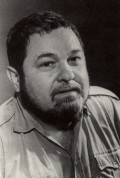presents
 Semyonov, Julian. Born 8 October 31 May 1931 in Moscow. His father was one of the "repressed". Julian Semyonov studied at the Oriental Institute of Moscow University, majoring in Persian History and Politics. After graduation, he worked as a researcher and lecturer. He began publishing fiction in 1958 and gave up the academic life to become a journalist and writer. His 1965 novel Petrovka 35 was an immediate success.
Semyonov, Julian. Born 8 October 31 May 1931 in Moscow. His father was one of the "repressed". Julian Semyonov studied at the Oriental Institute of Moscow University, majoring in Persian History and Politics. After graduation, he worked as a researcher and lecturer. He began publishing fiction in 1958 and gave up the academic life to become a journalist and writer. His 1965 novel Petrovka 35 was an immediate success. But Semyonov is mainly known for his "Stirlitz" series of novels. Otto von Stirlitz is the code name for Maksim Isaev, a Soviet intelligence agent who faithfully served the motherland in various posts from 1918 to 1967. He operated in Paris, Shanghai, and, most notably, in Nazi Germany during World War II where he infiltrated the SD (political security police) and practically single-handed exposed an attempt by Britain and the United States to conclude a separate peace with the Nazis and open a joint front against the Soviet Union. Stirlitz flirted with disaster in 1952 when, upon return to the Soviet Union, he was arrested by Beria's people. Only Stalin's timely death saved Stirlitz from execution. Unlike the "James Bond" type of spy thriller, the Stirlitz books are based on actual events, thoroughly researched and full of historical document and fact. Semyonov flew all over the world to research his books, even meeting with famed Nazi Otto Skorzeny. Semyonov maintained close contact and was friendly with KGB agents. There are also rumors that Semyonov himself was a KGB colonel. But his close friends deny this. The Stirlitz series appeared at a time when there was a conscious decision by the Soviet government--in light of the revealation of the Stalin-era abuses--to reabilitate the image of the intelligence worker in the eyes of the public. In this, the Stirlitz books were a hugh success. Stirlitz was an ideal Soviet intelligence worker. Modest and businesslike; cultured and well-rounded. He could speak on philosophy, history and science with equal ease. He knew most every European language, with the exception of Irish and Albanian. Hard-headed and cold-blooded, but not cruel. He preferred to use intellectual methods rather than crude violence. In his entire career he killed only once. He was a moderate drinker; his main use for a bottle of cognac was as a weapon to club opponents over the head with. And he was virtuous; when invited to partake of some prostitutes, he declined saying, "I'd rather drink some coffee." His one indulgence was his speedy and fancy Horch automobile. And through all his international adventures, Stirlitz, a true Russian at heart, was pining for his homeland. Stirlitz's status as folk hero is confirmed by the prevelance of Stirlitz jokes, which themselves constitute a whole sub-genre of Russian literature just begging for academic study. The books in the Stirlitz series are: (1) No Password Needed; (2) Diamonds for the Dictatorship of the Proletariat; (3) Tenderness; (4) Spanish Variant; (5); Alternative; (6) Third Card; (7) Major Whirlwind; (8) Seventeen Moments of Spring; (9) The Order to Survive; (10) Expansion (Parts 1 - 3); (11) Despair; and (12) Bomb for the Chairman. Even in post-Soviet society, Stirlitz is popular. Newspapers report that when the film version of Seventeen Moments of Spring is broadcast, there are noticably fewer people on the streets and the incidence of crime falls. Semyonov was a prolific writer and, besides the Stirlitz books, his major works include: Petrovka, 38; Ogoreva, 6; Confrontation; Reporter (1987); Burning; International Knot; Irreconcilability; Press Center; TASS is Authorized to Announce; Auction; Versions; Death of Stolypin; Diplomatic Agent; Dunechka and Nikita; Face to Face; Scientific Commentary; He Killed Me Near Luang-Prabang; Crossings; Pseudonym; Peter's Death; and The Secret of Kutovsky Prospect. He also produced many short stories such as: My Heart Is In The Hills; Leader; Grigorio, Friend of Ernesto; Rain in the Gutters; Still Not Autumn; Exile of the Poet; Myocardial Infarction; How This Was; Horses and People; My Guide; Night and Day; Farewell to a Beloved Woman; Skorzeny--Face to Face; Old Man in Madrid; and Old Man in Pamplona. Besides his writing, Semyonov also found time to serve as President of the International Association of Crime Writers. In 1990 Semyonov suffered a major heart attack and was clinically dead before surgeons were able to revive him. After that, however, he was severely debilitated, confinded to bed and unable to work. He died in 1993. He was married and had two daughters. |